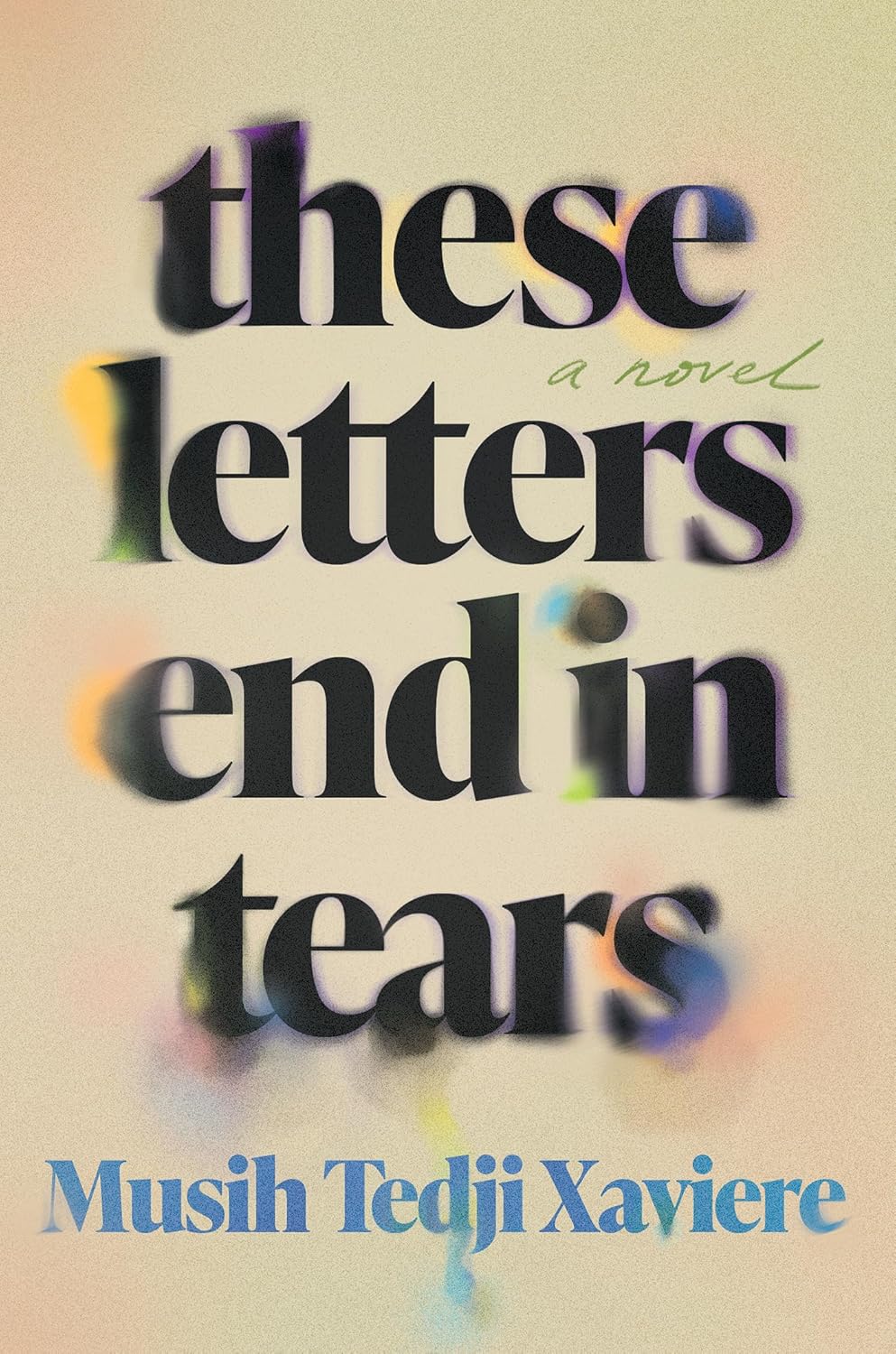Review of These Letters End in Tears by Musih Tedji Xaviere

These Letters End in Tears
Musih Tedji Xaviere
Catapult, 2024, 240 pages
$27.00
Reviewed by Roberta Arnold
In a powerful debut, These Letters End in Tears by Musih Tedji Xaviere is a coup de maître, a stroke of brilliance. Winner of the 2021 Pontas and JJ Bola Emerging Writers Prize before it was published, this beautifully written novel is a treatise on culture, politics, and caste wrapped in a love story. Xaviere parses connections between opposites in a way that startles the heart and challenges thought. The epistolary narrative creates an intricate picture of community being fleshed out while writing to the love of one’s life.
In Cameroon, being gay is a crime punishable by death. In spite of this harsh reality, the country is culturally rich–and awash in opposite dyads: Francophiles and Anglophiles, Muslims and Christians, the wealthy and the poor, the powerful and the powerless, the corrupt and the just. It is no surprise when masculine and feminine characteristics among lesbians are examined in the novel. Fatima is butch, and Bessem is femme. Butch mannish behaviors would target one more readily for being a lesbian, along with any woman she is seen with publicly, unlike two feminine women seen together walking arm in arm without risk. Bessem is from an Anglophile Christian family, raised with ample financial means. Fatima is a Muslim from a devoted religious family selling wares on the street. Fatima and Bessem meet at a soccer field where Fatima is playing soccer. When her ball runs close to Bessem’s feet, their attraction is unequivocal and being together is a natural extension of being themselves, as described by their later lovemaking: “… it felt like I was unfolding into you” (p. 17).
A hidden life together continues for three years and then they are separated. A surprise attack, orchestrated by Fatima’s brother, ends when the two lovers are carted away to jail with bruises and cuts. Rescued by her mother and father while Fatima remains behind in the jail cell, Bessem writes to Fatima: “I never saw you again” (p. 20).
The search for Fatima keeps the suspense humming. Although she never gives up searching for her lost love, Bessem goes on to achieve her educational dream of becoming a professor. At one point she tries explaining to her mother that a professorship is not to be confused with a doctorate. A professorship, bestowed by the Minister of Education and the University, has a higher standing in Cameroon, coming only after a doctorate. But when Bessem comes out to her mother, the recognition and honor become meaningless: the mother-daughter bond is divided; the heft of advanced degrees flutters to the ground like paper scraps. Despite the religious consensus that she was “eaten by a lesbian demon,” Bessem holds firm, refusing to marry a man to please her mother, refusing to adhere to dogma and law. She searches out another lesbian relationship with a Francophile named Audrey, trying to decide what it is she is looking for with her: will it be a “smash and dash,” the colloquial term for a short-term gay relationship, or her usual: “smash and stick around for the time being” (p. 114)?
Scenes from life in Cameroon roll forward with the well-oiled skills of a wordsmith. Gravitas is captured with immediacy like expelled poetic breath. “I hold hope in one hand and fear in the other, Fati” (p. 158). At times, I felt as though I were being taken by the hand and led through someone else’s dream, a dream deeply resonating with my own, despite being worlds apart. Their love story is a challenge to any society that tries to diminish others: “I don’t remember my vows word for word, but I recall promising her not to let the world come between us” (p. 193).
This book is for anyone who believes in love, community, and the defiant cry of resilience in survival: “Love is love and we can love whoever we want because love is our birthright” (p. 222).
Roberta Arnold I am a lop-sided lesbian elder living in the mountains of Southwest Virginia. I am very close, physically and mentally, to my sister, my dog, and my cat–not one who belongs to me though I hold each one close to my heart. I walk and swim and read and write and find myself in awe of nature and animals. I was born in Houston, raised in New York City, and have done a fair bit of seeing the world. In my good fortune, I came from an unusual lesbian-feminist-author mother, June Arnold. I’ve published stories and book reviews in Sinister Wisdom: A Multicultural Lesbian Literary & Art Journal. Back in the 1970s, I sat on a grassy lawn and wrote a short story for Ain’t I A Woman? Press in Iowa City, Iowa, when traveling across the country with a van full of radical dykes. This journey was outlined by me and my outlaw compadres in Sinister Wisdom 95, Reconciliations, 1971 Dyke Outlaw Roadtrip. With my sister, I wrote a tribute to my mother in Sinister Wisdom 89: Once and Later. More recently, I had a book review about Andrea Dworkin in Ms. Magazine. I volunteer and serve on the board at Sinister Wisdom and am a member of Dykewriters and OLOC.
"Empowerment comes from ideas."
― Charlene Carruthers
"Your silence will not protect you."
— Tourmaline
"Gender is the poetry each of us makes out of the language we are taught."
— Leila Raven


